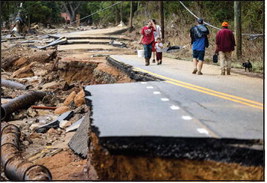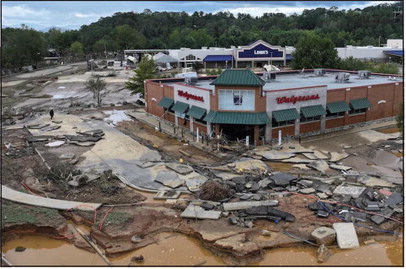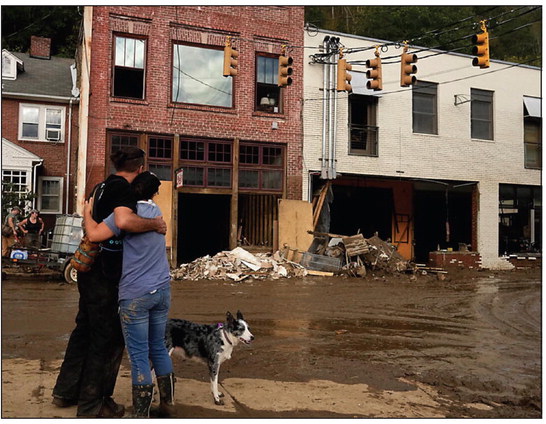Biden-Harris Administration Defends Efforts
As the devastating aftermath of Hurricane Helene unfolds, the official death toll has been reported at just over 200. However, this figure may be a gross underestimation, as many individuals are still suffering without essential supplies and as a result, the toll is expected to rise. Meanwhile, the Biden administration recently allocated a staggering $8 billion to Ukraine, while American citizens affected by the hurricane are offered a mere $750 loan. This assistance requires citizens to apply online, but many are left without power—raising a crucial question: how can they access aid when they cannot even connect to the internet?
In this dire situation, private initiatives have emerged as a lifeline. Elon Musk has stepped up to provide access to Starlink satellite systems for the areas hardest hit by Hurricane Helene. These innovative devices connect to low-orbit satellites, enabling crucial communication for first responders and offering 30 days of free internet access to residents who would otherwise be completely cut off. This modern solution shines a light on the potential of technology, especially when government responses have proven inadequate. Musk has pointed out that Starlink likely would have already been operational in these regions if not for the Harris-Biden Federal Communications Commission’s previous decision to halt an $885 million grant to SpaceX aimed at expanding broadband access to rural communities.
The inadequacy of the federal government’s response has drawn sharp criticism from various quarters, particularly from U.S. Senator Roger Marshall. In a recent interview on Fox Business, he expressed his dismay over the Harris-Biden administration’s handling of the disaster. “The Democrats create policies and then want more government programs and more money to solve the problem. But at the end of the day, they’re not getting the job done,” Senator Marshall asserted, pointing to the glaring gaps in emergen- emergency response and recovery efforts.

Marshall specifically slammed the administration for redirecting FEMA funds meant for disaster relief to provide housing for illegal migrants instead of helping American citizens devastated by the hurricane. “They took money from building the wall to help migrants, and they’ve taken money that was meant for FEMA, $1.4 billion,” he emphasized, highlighting the ongoing mis-allocation of resources at a critical time.
Moreover, the implementation of the 2021 Bipartisan Infrastructure Law, which set aside $42 billion to build broadband infrastructure in rural and under-served communities, has yet to yield tangible results under the Biden administration. The government’s inefficiency in executing this plan has only compounded the struggles faced by those in affected areas, who are left grappling with inadequate communication and support systems in the wake of the hurricane. As recovery efforts continue, these communities are left to navigate the reality of a system that seems to prioritize political agendas over immediate human needs. The combined effect of inadequate federal support and the redirection of disaster relief funds has left many Americans feeling abandoned in their time of need. The critical response from both private and public sectors is essential, but the question remains: Will the Biden administration step up to provide meaningful support for those affected by Hurricane Helene, or will the trend of neglect continue?
As the situation evolves, it is clear that the resilience of communities, along with the efforts of private entities like Musk’s Starlink initiative, may be what ultimately carries them through this challenging time. However, this crisis serves as a stark reminder of the need for a robust and reliable federal emergency response system that prioritizes the needs of American citizens during times of crisis.
In the end, as citizens watch the government’s actions closely, the hope is that lessons will be learned from this disaster—lessons that could inform future emergency responses and ensure that Americans receive the support they desperately need when calamity strikes.





